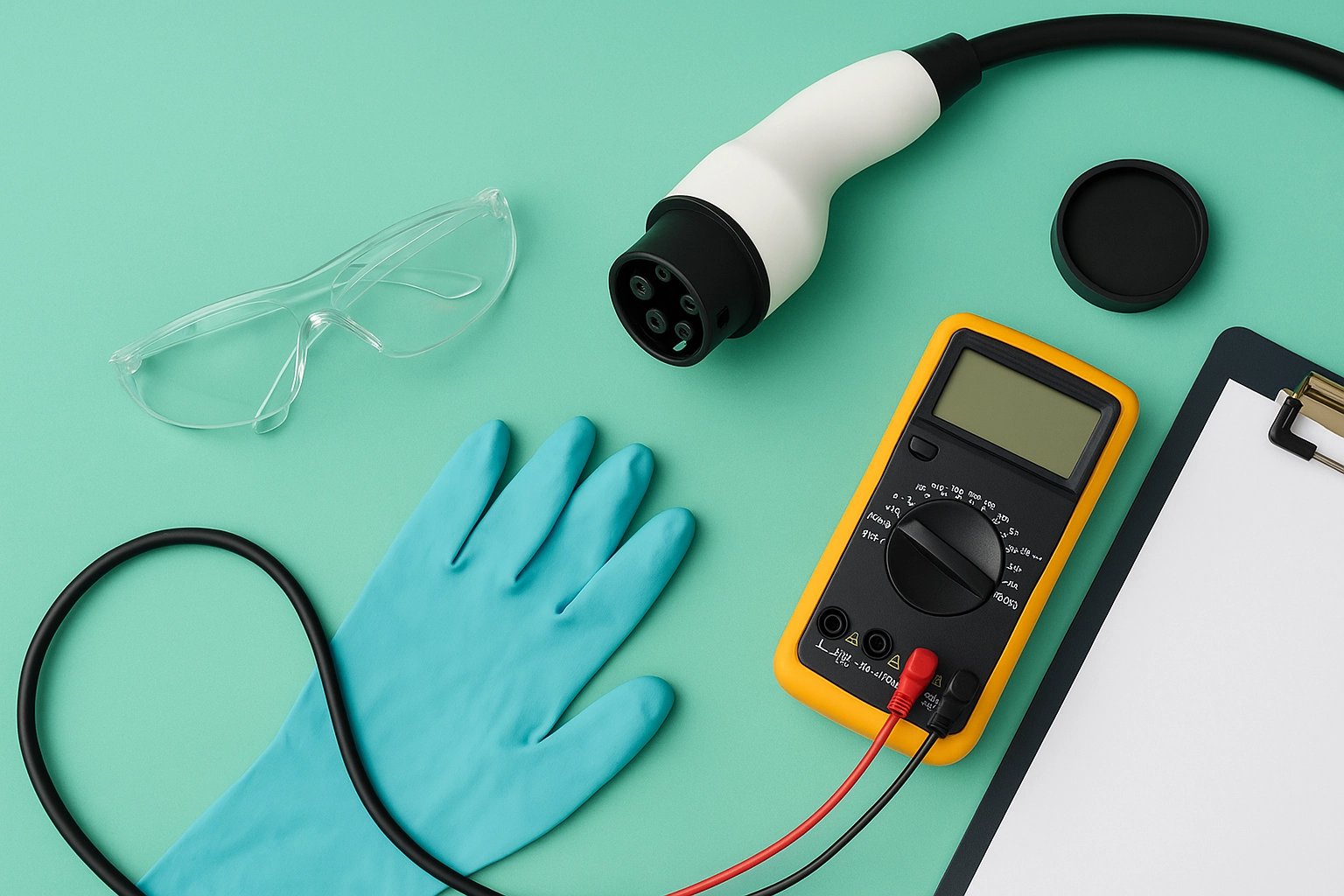IEC 61851 24 Digital Communication Charging Control Test
The IEC 61851 series of standards is widely recognized in the automotive industry for establishing communication protocols between electric vehicle (EV) chargers and vehicles. The IEC 61851-24 standard specifically focuses on digital communication charging control, which plays a crucial role in ensuring interoperability, safety, and efficient operation of EV charging systems.
The test protocol outlined in this document is designed to evaluate the ability of an EV charger to communicate with various vehicles using standardized protocols. This ensures that different manufacturers' equipment can work together seamlessly, reducing the risk of compatibility issues during deployment at public or private charging stations.
In real-world applications, this type of testing is essential for several reasons:
- Ensuring compliance with international standards
- Promoting interoperability among various EV chargers and vehicles
- Enhancing safety features by validating communication protocols
- Supporting the development and deployment of future smart charging infrastructure
The testing process involves connecting an EV charger to a test vehicle, configuring both devices according to IEC 61851-24 specifications, and then sending predefined commands through the digital interface. The system is monitored for correct command execution, error handling, and overall robustness.
Preparation for this test typically includes:
- Ensuring all equipment is calibrated according to manufacturer guidelines
- Verifying that both the charger and vehicle have up-to-date firmware versions
- Precisely configuring communication settings as per IEC 61851-24 requirements
The instrumentation used for this test includes:
- Dedicated IEC 61851-24 protocol analyzers to monitor and validate the digital communication between charger and vehicle
- Automated testing software that can simulate various charging scenarios and record results
- Advanced diagnostic tools capable of identifying any discrepancies in communication protocols
The test output includes detailed reports with metrics such as:
- Success rates for different command types
- Error codes and their frequency
- Detailed logs of all interactions between the charger and vehicle
- Performance under various environmental conditions (humidity, temperature)
This level of testing is critical for quality managers and compliance officers to ensure that new products meet stringent international standards. R&D engineers benefit from this process as it helps them identify potential flaws early in the design phase, while procurement teams can use these results to select suppliers who adhere strictly to best practices.
Industry Applications
The IEC 61851-24 digital communication charging control test is particularly relevant for:
- Automakers: Ensuring that their vehicles can connect seamlessly with a variety of chargers available in the market.
- EV Charging Network Operators: Guaranteeing interoperability across different networks to enhance user experience and reliability.
- Regulatory Bodies: Providing a standardized method for assessing compliance with international standards.
- Research Institutions: Facilitating the development of new technologies that improve charging efficiency and safety.
In addition, this test is valuable for:
- Insurance Companies: Assessing risk associated with different types of EV chargers.
- Parking Facility Managers: Ensuring the compatibility of installed chargers with visiting vehicles.
- Utility Companies: Supporting smart grid integration by validating communication protocols for demand response systems.
The standardized nature of IEC 61851-24 ensures that all participants in the EV ecosystem, from manufacturers to end-users, can rely on consistent and reliable charging solutions.
Why Choose This Test
Selecting a comprehensive test like this one offers several advantages:
- Enhanced Reliability: By ensuring that all components of the EV charging system function correctly, you reduce the chances of failures in real-world usage.
- Compliance Assurance: This test aligns your products with global standards, making them suitable for international markets and regulatory bodies.
- Innovation Support: Identifying potential issues early allows R&D teams to innovate more effectively without compromising safety or performance.
- Maintained User Trust: Consistent quality across all EV chargers fosters trust among users, which is vital for the success of electric mobility initiatives.
In today's competitive landscape, choosing a test that aligns with industry best practices can give your organization a significant edge. Quality managers and compliance officers will find this service particularly beneficial as it provides robust evidence of adherence to international standards.
International Acceptance and Recognition
The IEC 61851-24 standard enjoys widespread acceptance across the global automotive industry. It is recognized by:
- ISO (International Organization for Standardization): As part of its broader efforts to harmonize technical specifications worldwide.
- ASTM International: For its role in developing and promoting voluntary consensus standards.
- EN (European Norms): In Europe, where it is used alongside national standards to ensure uniformity across borders.
- IEC TC 69: The Technical Committee responsible for the development of standards related to electronic and electrical equipment.
This standard has been widely adopted by organizations such as:
- NHTSA (National Highway Traffic Safety Administration): In the United States, it is used to ensure safety in automotive communications.
- EEA (European Economic Area): For its role in promoting free movement of goods and services within member states.
- CECC (China Electric Vehicle Charging Standard Committee): In China, where it supports the development of a robust EV charging infrastructure.
The international recognition of IEC 61851-24 ensures that testing conducted according to this standard is accepted and trusted globally. This standardization not only simplifies compliance but also enhances the global competitiveness of your products.





